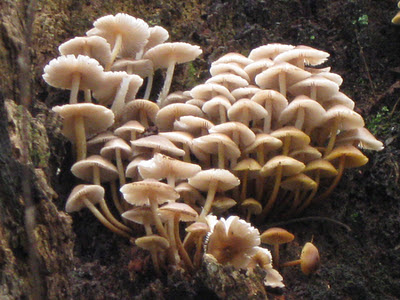image (c) 2009 Earrach of Pittsburgh
“ They do not, however, deem it consistent with divine majesty to imprison their gods within walls or represent them with anything like human features. Their holy places are the woods and groves, and they call by the name of god that hidden presence which is seen only by the eye of reverence."
-Tacitus the Roman, writing in the year 98 C.E. of the
Celto-Germanic peoples and their customs. - Germania, ch. ix
---------------------------------------------------------------------------------
If you're not compelled
to the point of worship
by the Natural World,
you're simply not paying attention...
you're simply not paying attention...
As members of ADF we are often regarded as hoarders of knowledge, obsessed with history and tradition, ritual-form and scholarship. Some used to go as far as to call us “the Neopagan MENSA.” Such characterizations have a certain element of truth in them and so I believe we should stay on our guard to make sure that the Druid-as-Priest-of-Nature tradition is upheld by our work as well.
The true spirit of Druidism is not an academic pursuit. Rather, it arises from a wide and balanced array of knowledge of the world. This knowledge is used not to its own ends, simply for the acquisition of more information, but instead, to allow our souls to more closely apprehend the Spirit of Nature Herself. This is achieved not by book-learning alone but is found through a synthesis of that scholarly preparation admixed with direct experience with the outdoors. Here I feel it is important to stress that to achieve this, we don't just think about it, we actually do it: we go outside...
When we turn the eye of our soul outward, our ponderous inner world of meanings and ideas is challenged and rectified by the direct immersion in the glorious actuality and blessed meaninglessness of Nature Herself. Through this intimate communion with the world we experience, first hand, our own Humanity as a part of Nature and we come to see its place in the Great Way of Things. In this way, our learning is wed with our immediate experience of the world. This then is the gnosis, or state of implicit-knowing which is ultimately beyond the reach of the scholar who'd prefer the comfort of a book or conversation by the fire to that of a walk in the woods.
In Druidism we seek to be instructed by the light of the Outer World and come to value its lessons as highly as those we might otherwise find seeking the Light Within.



No comments:
Post a Comment